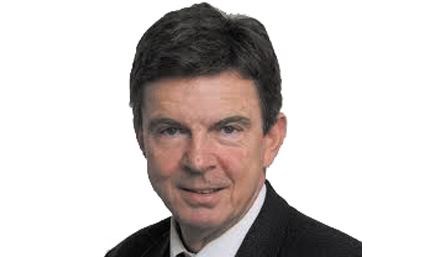It's not so much that Prime Minister Justin Trudeau has cavalierly dismissed the major promise to change the voting system that he made routinely throughout the last election campaign.
It's that he made such a dumb promise in the first place.
Even the most vehement critics of the current candidate-with-the-most-votes-wins system realize it would take a lot of finesse to replace the entrenched system with something completely new and different. Voters have to be walked very carefully through any process that makes such a fundamental change.
But in the 2015 election campaign, Trudeau blundered into a very complicated argument with a rash promise based on some dim idea that people not only wanted change, but knew exactly what the change should be.
When he won, his first throne speech promised to "take action to ensure that 2015 will be the last federal election conducted under the first-past-the-post voting system."
That meant he gave himself less than four years to canvass, consult, devise a workable change, decide and implement. That led to an even more rash position of looking ready for a while to slam some unspecified alternative system into place without a national referendum.
The promise started to crumble last year, and on Wednesday it disintegrated.
Trudeau's mandate letter to his new democratic reform minister is a marvel. It explicitly orders her to ignore his campaign promises.
"Changing the electoral system will not be in your mandate."
His government got as far as consulting on the issue, but after the first round of engagement, the findings apparently sparked the belated realization that this is a lot more complicated than it seemed.
His letter to minister Karina Gould explained: "A clear preference for a new electoral system, let alone a consensus, has not emerged. Furthermore, without a clear preference or a clear question, a referendum would not be in Canada's interest."
That reconfirms for the umpteenth time one of the basic observations about electoral reform. Criticizing the current system is easy. Coming up with something better is the hard part.
And while advocates for change are extraordinarily zealous, their numbers aren't as deep as some people think.
It's a shame Trudeau didn't learn from the B.C. experience. The first-term B.C. Liberals made a far more considered effort to examine the voting system then, creating an independent assembly of 161 citizens and giving them lots of time to mull over the intricacies.
They did come up with something better, but it was too complicated for voters in 2005 to reach the 60 per cent majority required to pass. Concerns about the threshold prompted a re-do, and it was decisively defeated in 2009.
But voting reform is an eternal issue, particularly among losing parties. The B.C. NDP committed to a referendum on proportional representation two years ago and made democratic reform a critic portfolio (held by MLA Gary Holman).
Leader John Horgan said Wednesday that Trudeau's flip-flop doesn't change his plans to campaign for a major change in the B.C. system. But the prime minister's ditching of the idea doesn't do Horgan any favours. It would have been much easier to draft behind a national movement for change than try to restart one in B.C.
When it comes to democratic reform, people at the moment are more interested in ethics and fundraising than in voting mechanisms.
Alberta Premier Rachel Notley once had the same NDP stand on voting change, but it slid down her priority list. Electoral reform there is now parked in a dysfunctional legislature committee where it doesn't look to be going anywhere.
B.C. Green Leader Andrew Weaver said voting reform has been a guiding light for his party for years. But he needs to get a lot more MLAs elected - under the current system - before he can do much about it.
For all the damage Trudeau's move does to the electoral-reform movement, it wreaks much more havoc on his own reputation.
To paraphrase his own throne speech, he has taken action to ensure that 2015 will be the last federal election where people fully believe anything he says.



